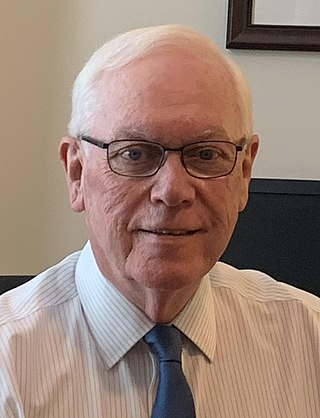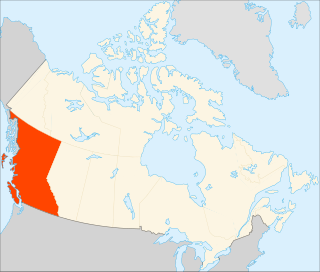School choice is a term for education options that allow students and families to select alternatives to public schools. It is the subject of fierce debate in various state legislatures across the United States.

The Bill & Melinda Gates Foundation (BMGF), a merging of the William H. Gates Foundation and the Gates Learning Foundation, is an American private foundation founded by Bill Gates and Melinda French Gates. Based in Seattle, Washington, it was launched in 2000 and is reported to be the second largest charitable foundation in the world, holding $69 billion in assets as of 2020. On his 43rd birthday, Bill Gates gave the foundation $1 billion. The primary stated goals of the foundation are to enhance healthcare and reduce extreme poverty across the world, and to expand educational opportunities and access to information technology in the U.S. Key individuals of the foundation include Bill Gates, Melinda French Gates, Warren Buffett, chief executive officer Mark Suzman, and Michael Larson.
The Koch family foundations are a group of charitable foundations in the United States associated with the family of Fred C. Koch. The most prominent of these are the Charles Koch Foundation and the David H. Koch Charitable Foundation, created by Charles Koch and David Koch, two sons of Fred C. Koch who own the majority of Koch Industries, an oil, gas, paper, and chemical conglomerate which is the US's second-largest privately held company. Charles' and David's foundations have provided millions of dollars to a variety of organizations, including libertarian and conservative think tanks. Areas of funding include think tanks, political advocacy, climate change denial, higher education scholarships, cancer research, arts, and science.
The Five Colleges of Ohio, Inc. is an American academic and administrative consortium of five private liberal arts colleges in the state of Ohio. It is a nonprofit educational consortium established in 1995 to promote the broad educational and cultural objectives of its member institutions.
Student financial aid in the United States is funding that is available exclusively to students attending a post-secondary educational institution in the United States. This funding is used to assist in covering the many costs incurred in the pursuit of post-secondary education. Financial aid is available from federal and state governments, educational institutions, and private organizations. It can be awarded in the form of grants, loans, work-study, and scholarships. In order to apply for federal financial aid, students must first complete the Free Application for Federal Student Aid (FAFSA).
A public university or public college is a university or college that is owned by the state or receives significant funding from a government.

Private universities and private colleges are institutions of higher education that are not operated, owned, or institutionally funded by governments. However, they often receive tax breaks, public student loans, and grants from governments. Depending on their location, private universities may be subject to government regulation. Private universities may be contrasted with public universities and national universities. Many private universities are nonprofit organizations.

Brian Christopher Mitchell is the president and managing principal of Academic Innovators. He is a nationally recognized expert on American higher education. Mitchell lectures widely and has served as a contributor for publications like The Huffington Post and Forbes. Mitchell's second book, "Leadership Matters," was also named by Forbes as one of the Top 10 Books in Higher Education.
The Institute for Citizens & Scholars is a nonpartisan, non-profit based in Princeton, New Jersey that aims to strengthen American democracy by “cultivating the talent, ideas, and networks that develop lifelong, effective citizens.” It administers programs that support civic education and engagement, leadership development, and organizational capacity in education and democracy.
The Wisconsin Association of Independent Colleges and Universities (WAICU) is the official organization of Wisconsin's private, nonprofit (or independent) institutions of higher learning and their more than 56,000 students. It is headquartered in Madison, Wisconsin, was founded in 1961 and is recognized under state law. In 2023, the Association has 23 members. Each WAICU member is a nonprofit, fully accredited, four-year baccalaureate and/or graduate institution. The presidents of these institutions lead WAICU as its board of directors.
The American Indian College Fund is a nonprofit organization that helps Native American students, providing them with support through scholarships and funding toward higher education. The fund provides an average of 6,000 annual scholarships for American Indian students and also provides support for other needs at the tribal colleges ranging from capital support to cultural preservation activities. Charity Navigator gave the College Fund an overall rating of 88.36 out of 100.
The Council of Independent Colleges (CIC) is an association in the United States of more than 650 independent, liberal arts colleges and universities and more than 100 higher education affiliates and organizations that work together to strengthen college and university leadership, sustain high-quality education, and enhance private higher education’s contributions to society. To fulfill its mission, CIC provides ideas, resources, and programs that help institutions improve their leadership expertise, educational programs, administrative and financial performance, and institutional visibility. Member institutions are drawn from across the spectrum of independent higher education, including selective liberal arts colleges, medium-sized private universities, religious colleges, historically black colleges, and single-sex institutions. The Council is headquartered at One Dupont Circle in Washington, DC.

Liberal arts colleges in the United States are undergraduate institutions of higher education in the United States that focus on a liberal arts education. The Encyclopædia Britannica Concise defines liberal arts as a "college or university curriculum aimed at imparting general knowledge and developing general intellectual capacities, in contrast to a professional, vocational, or technical curriculum". Generally, a full-time, four-year course of study at a liberal arts college leads students to earning the Bachelor of Arts or the Bachelor of Science.

Higher education in British Columbia is delivered by 25 publicly funded institutions that are composed of eleven universities, eleven colleges, and three institutes. This is in addition to three private universities, five private colleges, and six theological colleges. There are also an extensive number of private career institutes and colleges. Over 297,000 students were enrolled in post-secondary institutions in British Columbia in the 2019-2020 academic year.

In the United States, tribal colleges and universities (TCUs) are a category of higher education, minority-serving institutions defined in the Higher Education Act of 1965. Each qualifies for funding under the Tribally Controlled Colleges and Universities Assistance Act of 1978 or the Navajo Community College Act ; or is cited in section 532 of the Equity in Educational Land-Grant Status Act of 1994.

The Foundation for California Community Colleges (FoundationCCC) is a 501(c)(3) nonprofit organization with headquarters in Sacramento, California. Established in 1998 as the official nonprofit auxiliary to the California Community Colleges. The organization is overseen by a Board of Directors, where eleven members serve four-year terms with a term limit of three consecutive terms, for a maximum of twelve consecutive years of service.
The Koret Foundation is a private foundation based in San Francisco, California. Its mission is to strengthen the Bay Area and support the Jewish community in the U.S. and Israel through grantmaking to organizations involved with education, arts and culture, the Jewish community, and the Bay Area community. The foundation takes an approach of testing new ideas and bringing people and organizations together to help solve societal and systemic problems of common concern.

The Phelps Stokes Fund (PS) is a nonprofit fund established in 1911 by the will of New York philanthropist Caroline Phelps Stokes, a member of the Phelps Stokes family. Created as the Trustees of Phelps Stokes Fund, it connects emerging leaders and organizations in Africa and the Americas with resources to help them advance social and economic development.
The Jack Kent Cooke Foundation is a private, independent foundation which provides scholarship programs to gifted students in the U.S. who have financial need. It offers academic advising and other support services to students from 8th grade to graduate school. Since 2000, it has awarded over $175 million in scholarships to nearly 2,300 students and more than $97 million in grants to organizations that serve gifted low-income students.
The Hispanic Federation (HF) is a U.S based non-governmental organization focused on supporting Hispanic communities through local, state, and national advocacy. The Federation was founded in New York City in 1990 by a small group of Latino leaders, establishing initiatives to advocate for the interests of the Hispanic community and has expanded to establish programs, and policies in 16 states. The organization's objective is to empower and advance the Hispanic community primarily through service pillars, membership services, advocacy, and community programs. The Federation has formed relationships with a network of 100 Latino grassroots nonprofits, as well as collaborating with organizations, government officials, and private sector partners to enact systemic change related to a variety of socioeconomic issues for Hispanic communities. The Federation has gained national recognition for its work in areas of education, health, immigration, economic empowerment, civic engagement, environment, and organizational development to strengthening Latino institutions to ultimately increase the quality of life within Hispanic communities.








